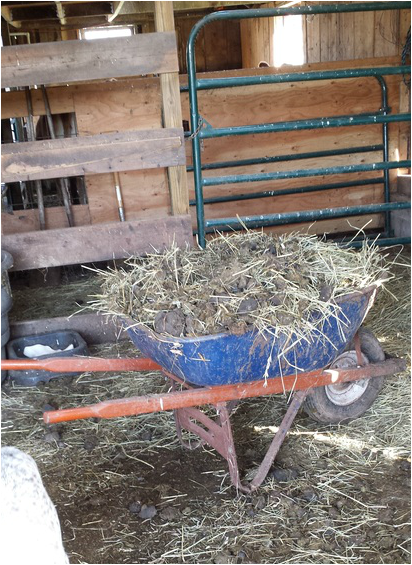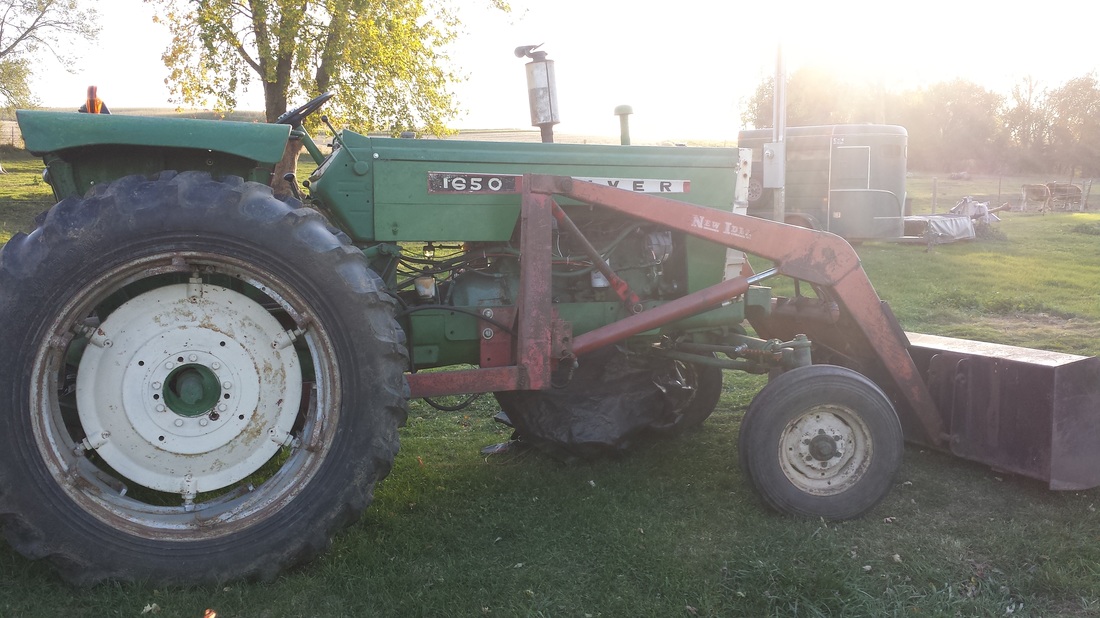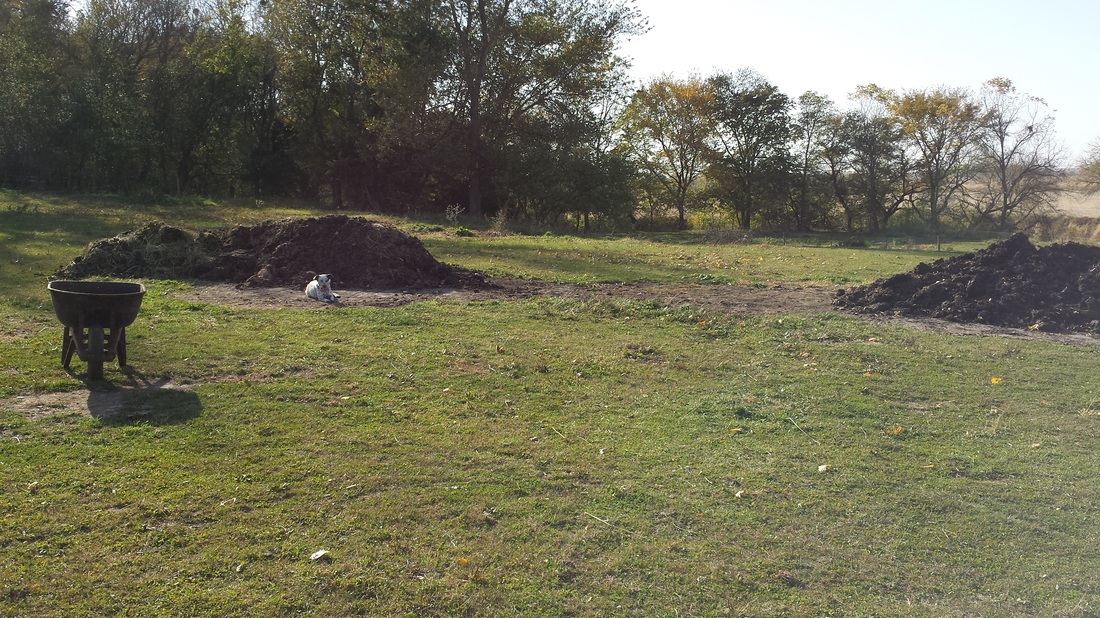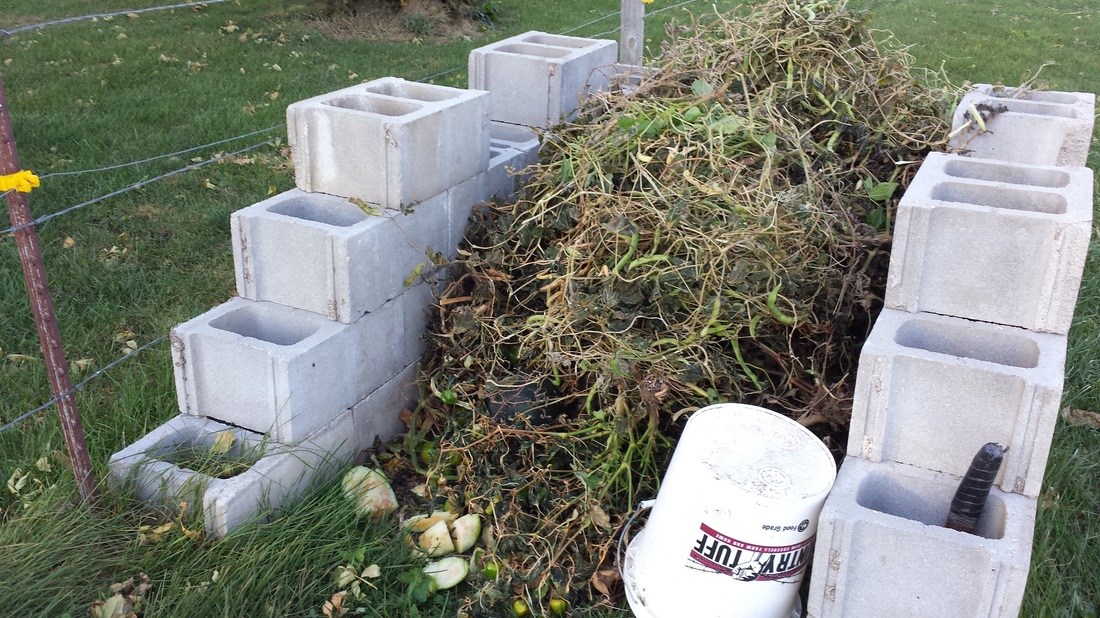 Me attempting to take a selfie next to our compost pile ... selfies have never been my strong point ...
Me attempting to take a selfie next to our compost pile ... selfies have never been my strong point ... Farming is a dirty job. In fact, several different types/aspects of farming have been featured on Mike Rowe’s Dirtiest Jobs T.V. show. Today I am going to share with you ONE of the ‘dirty’ aspects of farming.
MANURE! And what we do with it:
Horses and cows eat a lot. And all of that food seems to come out the other end in the form of manure (aka: poo – lots and lots of poo!). So as a result, we have to have a plan as to what to do with all that manure. If we let it build up in the building, our little building would quickly become full! Plus the animals would have a pretty poor quality of life. So, what do we do with it all?? Here at Brun Ko Farm, we haul the manure and soiled bedding out and compost it!
Composting is the process of breaking down manure and other organic substances into a nutrient rich product, often called humus, that makes great fertilizer! According to the NDSU Extension Service, and confirmed by my own personal observation, composting reduces the volume and density of manure of 50-65%! Now that has huge benefits of it’s own! Not only do we end up with a nutrient dense product that is great for the soil, we also decrease the amount of hauling and the land space necessary to spread it on!
With all of these benefits, composting was an easy decision for us. But how do we do it? There are many different methods of making compost and it can be as technical or as simple as you want, but there are 4 important components to every method: Carbon & Nitrogen (aka: manure and vegetation), Oxygen, and water.
So the simplest version of composting would be to just make a pile of garden scraps and/or manure and let it sit until it decomposes. Which it will eventually do but it will take a long time and could get pretty smelly. So because we want to expedite the process and eliminate odors as much as possible we take a few extra steps. Here is our process:
First we have to get the manure from the barn to the pile. For us this means using a pitchfork and wheel barrow. This also helps build muscles ;) Luckily, the pile isn’t too far from the barn!
Once we have a good pile, we have to turn it periodically to keep oxygen in the pile. The bacteria that actually do the grunt work of breaking down the manure into humus are aerobic (oxygen loving) in nature. If a pile just sits and oxygen isn’t regularly introduced then the bacteria can’t do their work. We introduce oxygen by using the old Oliver to turn the pile regularly.
Once our first pile got large enough, we stopped adding to it and started a second pile. This allows the first pile to finish composting
Well, that’s the basics of composting and how we do it. We like compost so much around here that we actually have a compost pile near the garden too.
If you want to try composting at home, you can find some links below to help you get started.
http://eartheasy.com/grow_compost.html
http://www.redwormcomposting.com/getting-started/
That’s all for now folks!
Enjoy!
Brun Ko Farm






 RSS Feed
RSS Feed